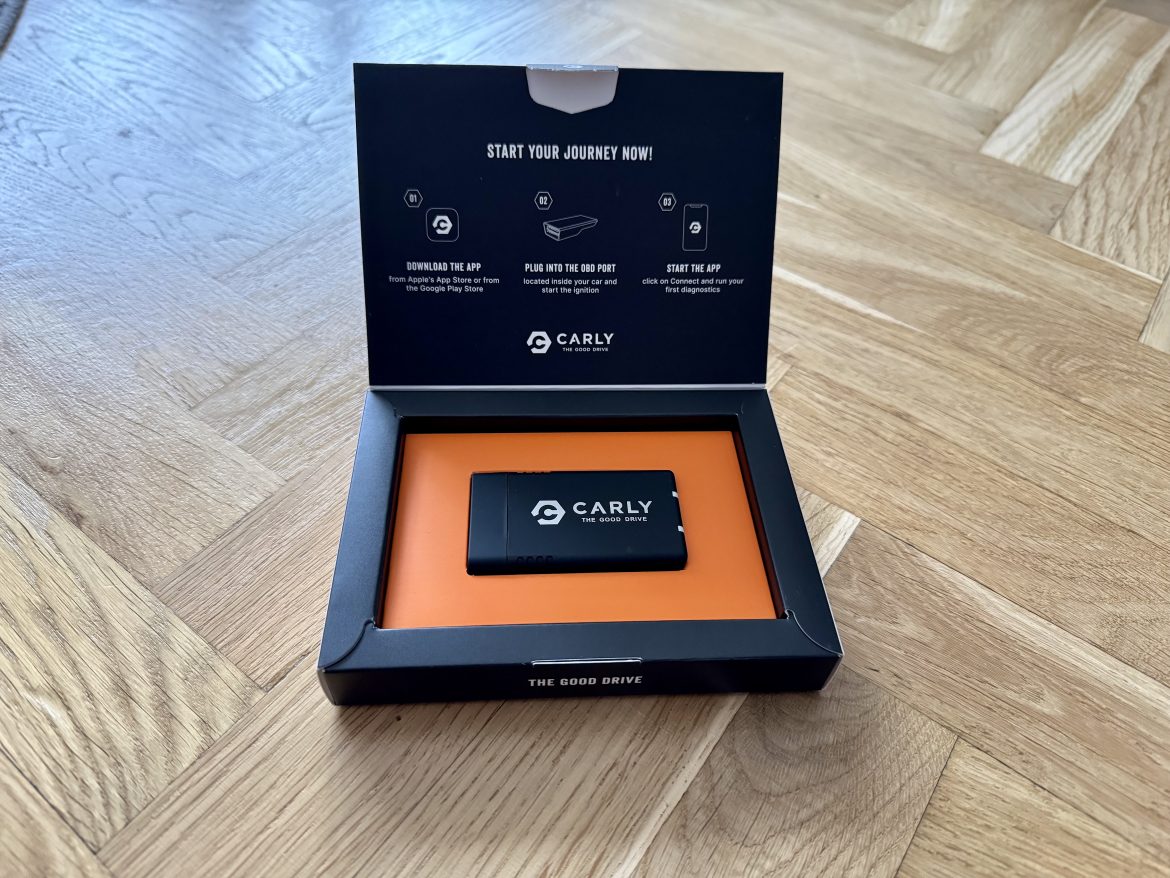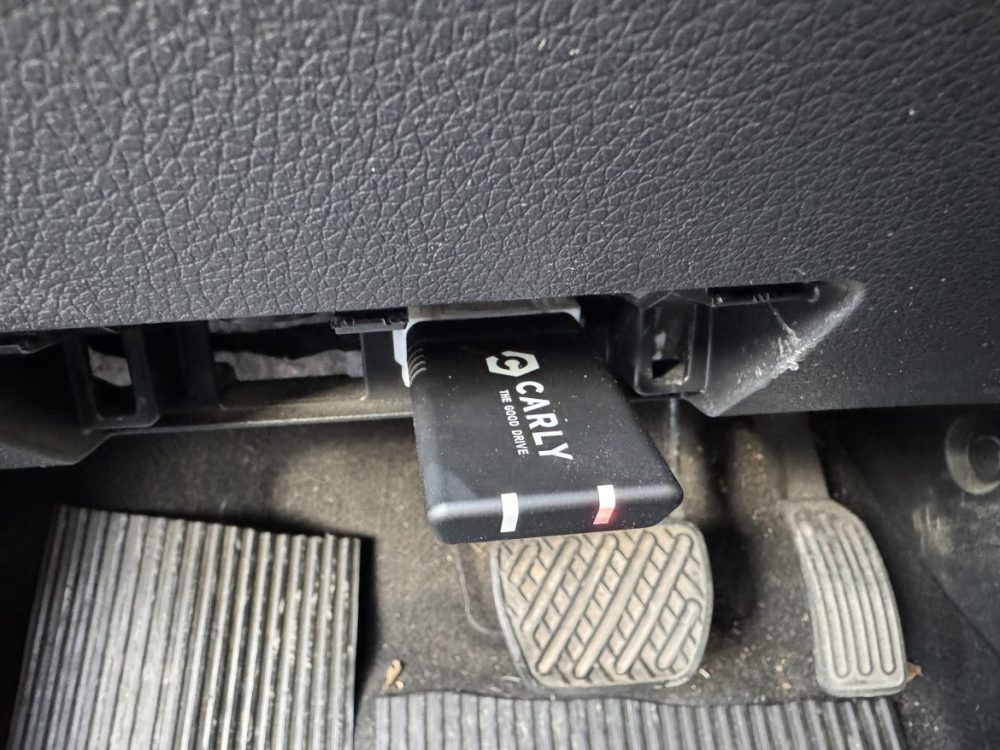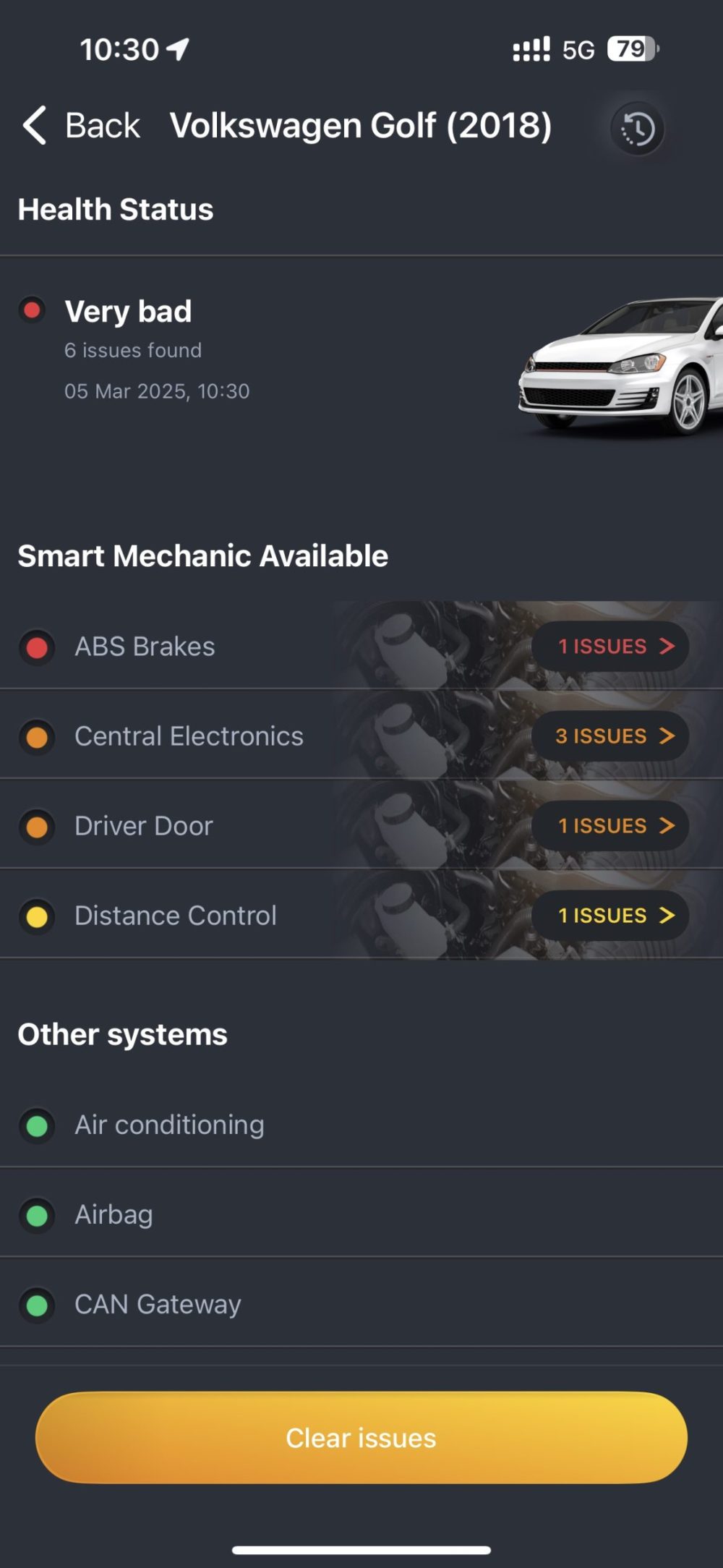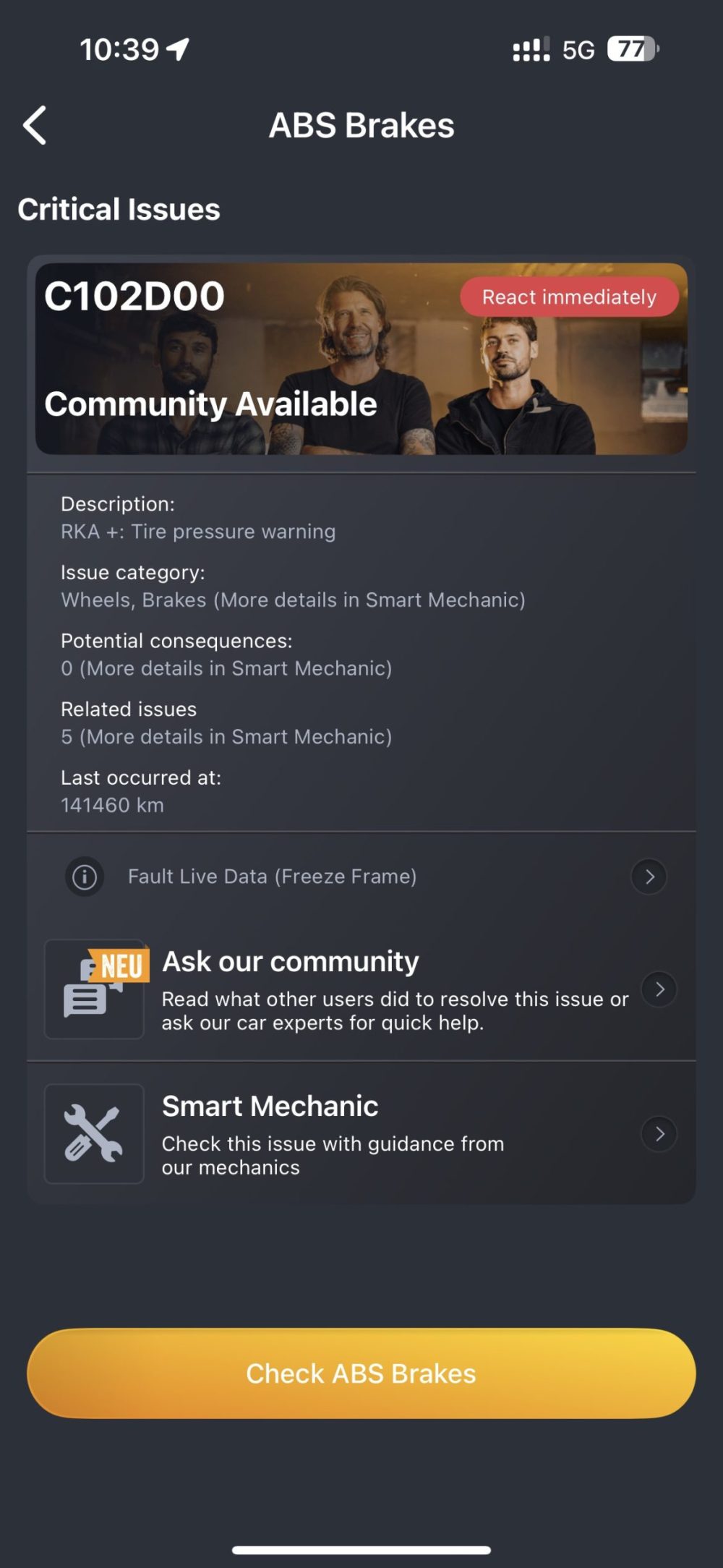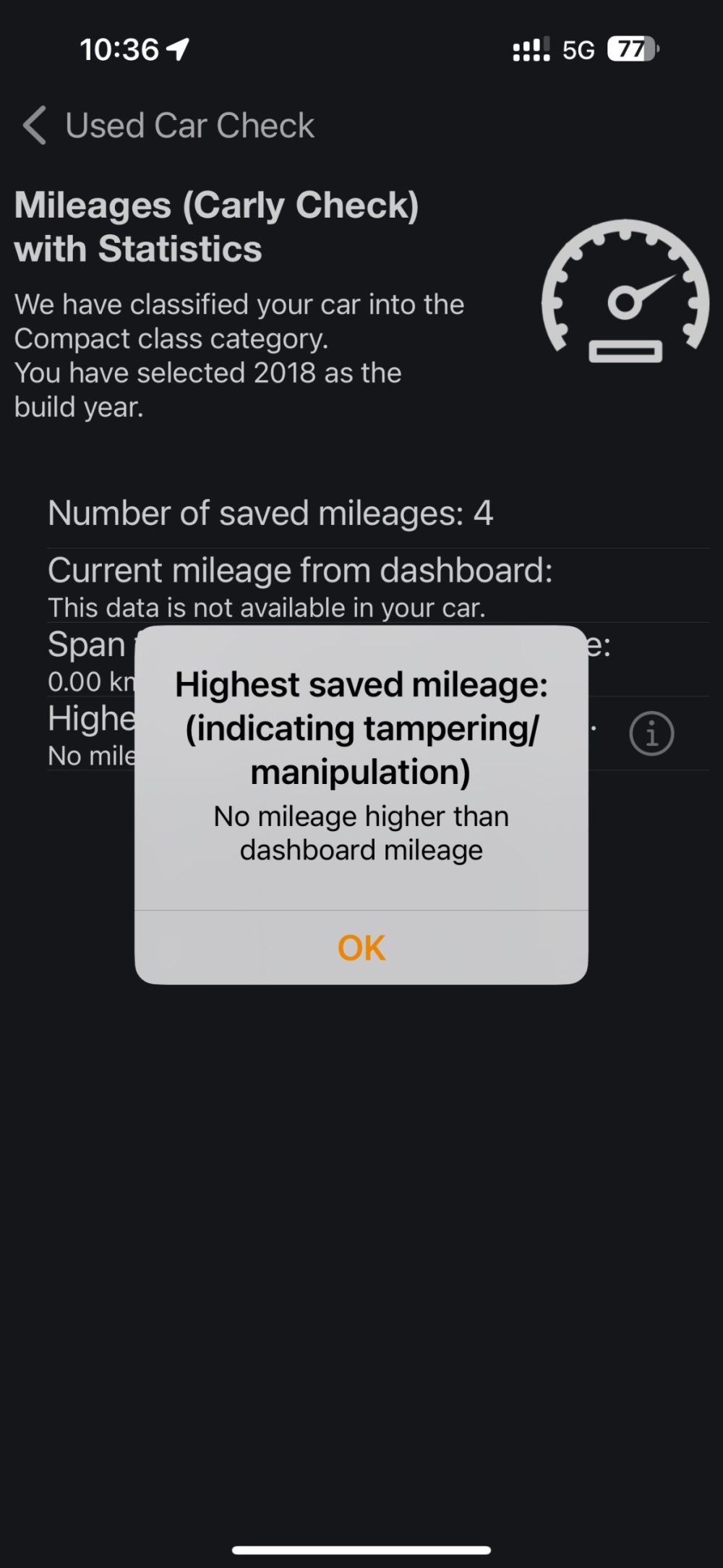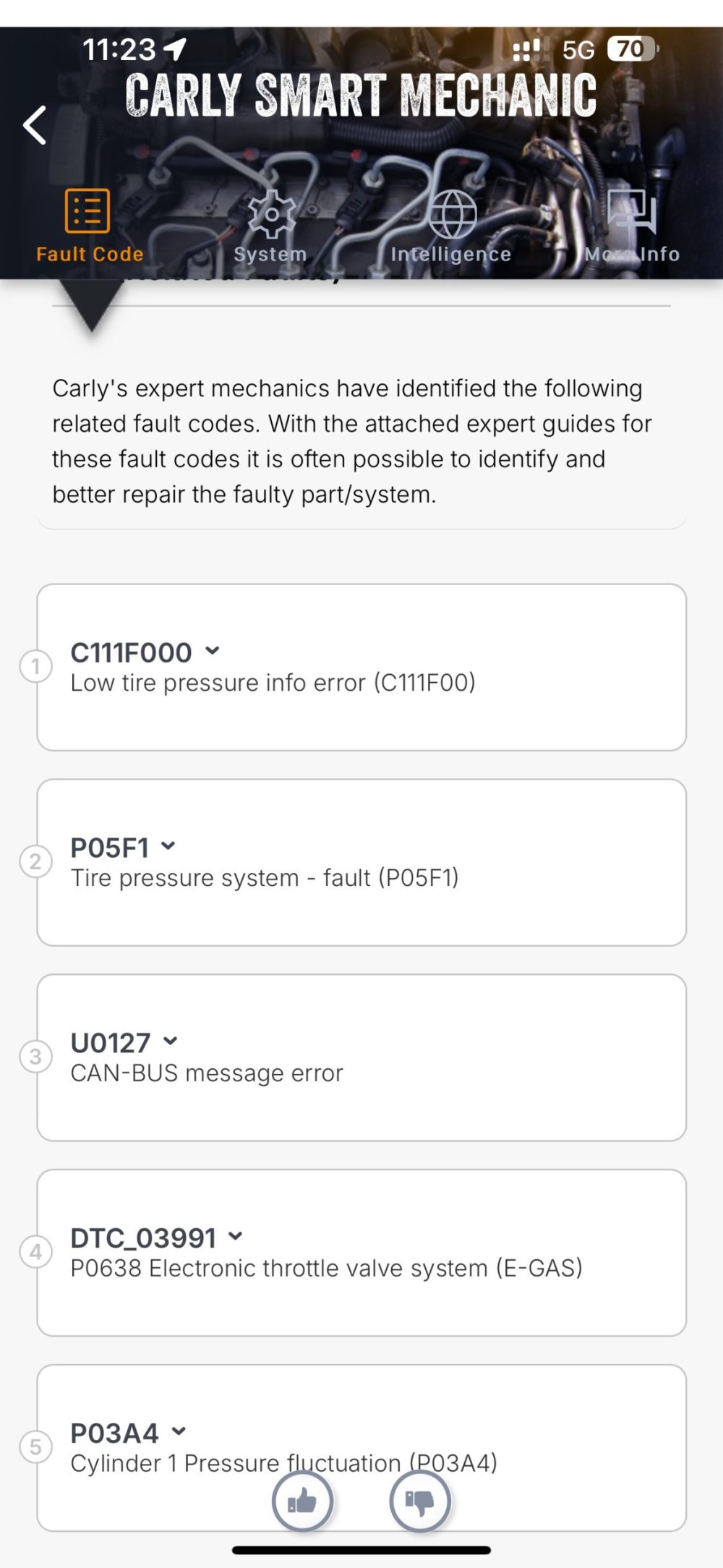TL;DR
Carly offers a car diagnostic app and OBD scanner combo for around 1,000 SEK annually, useful for spotting potential mileage tampering and identifying hidden vehicle issues before buying used. However, the system can sometimes flag minor problems as serious, potentially causing unnecessary anxiety and leading you to dismiss a good car. While handy for proactive maintenance, interpret its "bad" ratings with caution, as they might overstate issues. Discover if Carly is the right tool for your car health monitoring needs – dive into the full review to find out!
Carly is a service that scans and diagnoses vehicle diagnostic codes, offering insights into potential mileage manipulation. However, it may also contribute to unwarranted vehicle-related anxiety.
Vehicle ownership can be a rewarding experience, albeit an expensive one. As with any machine, older vehicles are increasingly susceptible to wear and tear and other age-related issues. Proactive servicing and maintenance are crucial, including preventative measures. Examples include promptly addressing stone chips in the windshield and applying rust protection to prevent corrosion from spreading.
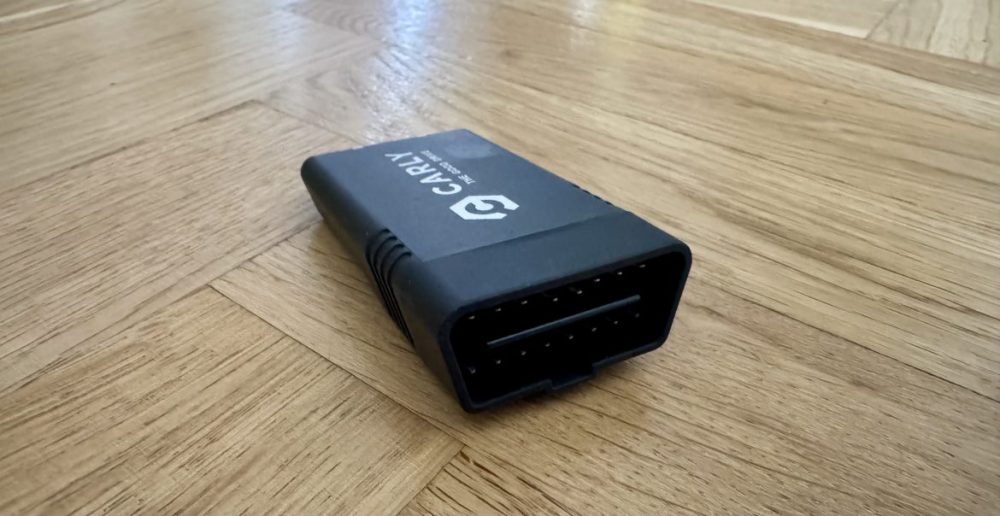
Carly is a premium app that utilizes an OBD (On-Board Diagnostics) scanner with Bluetooth connectivity. This scanner plugs into the vehicle’s OBD port, typically located under the steering wheel on the driver’s side. Most vehicles manufactured after 2000 (petrol) and 2003 (diesel) are equipped with an OBD port. This port allows workshops and vehicle inspection services to access data related to various vehicle systems, identifying potential issues that may not be readily apparent. This diagnostic capability also has a reverse application, which we will explore further below.
To unlock the full suite of features within the Carly app, an annual subscription is required. The scanner is included with orders placed through the website. Note that continued use of the app’s functionality necessitates ongoing subscription payments. The basic package costs approximately 850 SEK per year, while the “premium” package, which unlocks all available insights, costs roughly 100 SEK more, totaling approximately 1,000 SEK annually. The app is compatible with both iOS and Android devices, offering a straightforward installation and registration process. Users select their vehicle’s make and model year, then connect the OBD scanner to the designated port. The scanner draws power and activates Bluetooth connectivity upon insertion, enabling communication with the app and initiating the diagnostic process.
The app typically requires a few minutes to complete a comprehensive scan (though occasional freezing was observed during testing), after which a report is generated. During testing with a 2018 Volkswagen Golf, the following summary was presented:
A “very bad” rating raises immediate concern. Upon investigating the identified “acute” fault within the ABS braking system, it was determined to be an error message originating from the RKA+ system, a system responsible for monitoring tire pressure (and not directly related to the ABS). Critically, no corresponding warning lights or messages were displayed on the vehicle’s dashboard. Contacting Volkswagen to inquire about the fault and the supplementary data (often consisting of disparate messages, measurements, and non-specific faults), the service technician acknowledged the RKA+ warning as a known issue within the VAG group’s vehicle models. The technician further advised against proactively addressing vague warnings without demonstrable operational problems, emphasizing the potential for introducing further complications. He warned that addressing such non-specific issues could quickly escalate into a “total catastrophe.”
Carly also incorporates a mileage verification function, reading mileage data from various storage locations within the vehicle. This feature serves as a check against potential odometer manipulation, a practice more prevalent in older vehicles (which can often be assessed using services such as car.info). In the tested vehicle, with a single prior owner, the mileage data was consistent across all storage locations. However, the accuracy of this function is difficult to ascertain definitively without testing a vehicle known to have undergone odometer manipulation. Even then, sophisticated tampering may involve resetting all relevant systems.
The app supports adding multiple vehicles for ongoing monitoring. Testing with a neighbor’s 2009 Audi A4, Carly accurately identified four pre-existing faults, correctly classifying them as less severe. However, testing a 2018 Nissan Pulsar yielded “inconclusive” results after an extended analysis, with identified faults lacking definitive confirmation. Notably, all three vehicles tested exhibited error messages, ranging from minor issues (e.g., a heating problem in the central locking system that did not impede its functionality) to incomprehensible data strings. The Carly app also allows users to reset error messages, facilitating the identification of persistent issues that reappear after 2-3 days, suggesting a potentially “real” problem requiring attention.
The app integrates a forum, enabling users to connect with other owners experiencing similar issues. It also features a Smart Mechanic section, compiling diagnostic information from mechanics related to specific fault codes. However, the information provided is often broad and generalized, akin to a physician’s preliminary diagnosis where numerous factors can contribute to the underlying issue, ranging from software glitches and loose connections to faulty sensors and batteries. This feature may be useful for DIY mechanics or for providing supplemental information to a professional workshop.
While Carly offers ease of use, alternative solutions exist, consisting of an OBD cable or Bluetooth scanner coupled with a third-party app, often available for a one-time fee of 300-400 SEK. Carly’s app boasts a more polished interface and comprehensive feature set compared to many alternative apps, but this enhanced functionality comes at a significantly higher long-term cost due to the subscription model. Carly’s subscription model has faced online criticism for its perceived lack of transparency, with some users reporting difficulties canceling auto-renewal. Opting to subscribe through platforms like the App Store or Google Play may mitigate these issues.
The potential for “critical” faults to be misidentified or overstated is a notable concern. Addressing perceived issues without demonstrable symptoms carries the risk of introducing new problems, analogous to undergoing unnecessary medical procedures.
Summary Carly
At a cost of approximately 1,000 SEK per year, Carly provides a reasonable system for monitoring vehicle health, and can be especially useful when evaluating used vehicles. Identifying and avoiding vehicles with certain critical faults (particularly engine-related issues that are difficult to detect visually or audibly) is a key benefit, along with verifying the accuracy of the odometer reading.
However, the results generated by the app should be interpreted with caution. The “very bad” rating assigned to the test VW, despite the “acute” fault pertaining to a minor issue with minimal real-world impact, illustrates this point. While driving with underinflated tires poses risks, such as increased puncture susceptibility and reduced fuel economy, the issue is easily rectified by checking and adjusting tire pressure. Furthermore, relying on the system to provide timely warnings of air loss remains unproven. The “very bad” rating, in this instance, appeared disproportionate and could lead to unwarranted rejection of the vehicle during a purchase evaluation. Accurate identification of serious, long-term functional risks would be highly valuable, akin to detecting a critical health issue.
Similar to the health anxiety potentially induced by constant self-monitoring apps, the continuous stream of vehicle diagnostics from Carly can become a source of stress. While tracking vehicle health over time and addressing emerging issues proactively is beneficial, obsessing over minor deviations from the norm can lead to unnecessary interventions.
The Carly OBD scanner and app appear to function as advertised and may represent a worthwhile investment, particularly for prospective used car buyers. However, the quality and reliability of the diagnostic reports can vary. There is a risk that otherwise sound vehicles may be unfairly dismissed based on minor or inconsequential faults. Moreover, the subscription model entails a significant long-term cost, especially considering the availability of alternative solutions offering comparable functionality (albeit perhaps with a less refined user experience) for a one-time purchase price.
Carly provided a test unit for this review. The provision of review materials does not influence our editorial independence or testing procedures.
